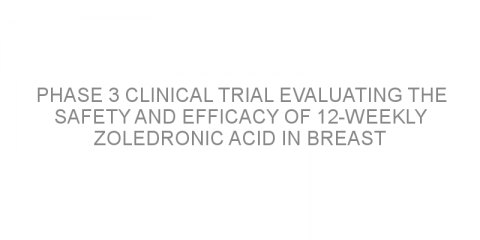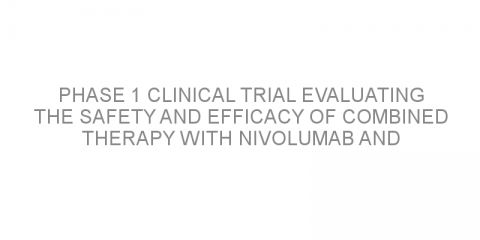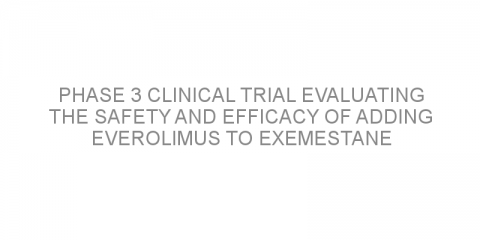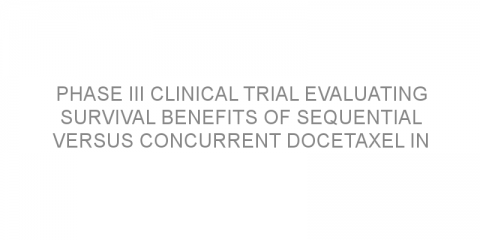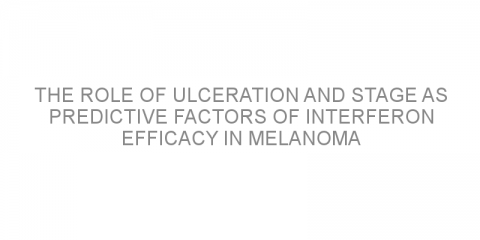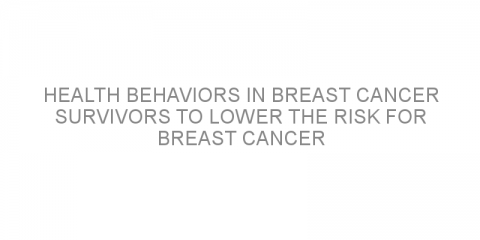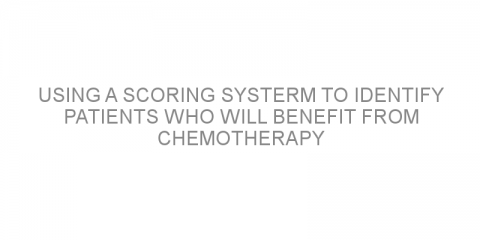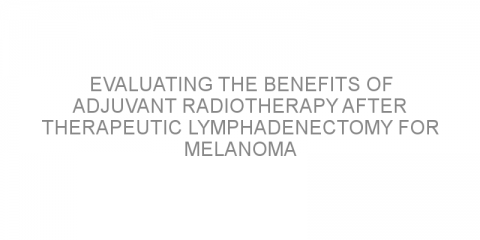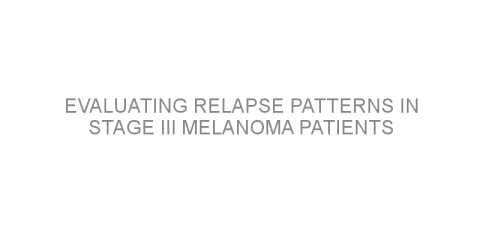In a nutshell This phase 3 clinical trial examined whether zoledronic acid (ZA) given at a lower frequency (every 12 weeks) has the same effects as the previous frequency (every 4 weeks) in breast cancer patients with bone metastases (cancer that has spread from the breast to the bones). Some background Over half of patients with advanced...
Read MoreConfined or spread disease-Spread to regional lymph nodes Posts on Medivizor
Phase 1 clinical trial evaluating the safety and efficacy of combined therapy with nivolumab and ipilimumab in patients with advanced melanoma
In a nutshell The aim of this phase 1 clinical trial was to assess the safety and efficacy of combined therapy with nivolumab and ipilimumab (Yervoy) in patients with advanced melanoma. Some background Advanced melanoma is cancer of the pigmented (colored) cells of the skin (or "melanocytes") that has spread to distant lymph nodes or...
Read MorePhase 3 clinical trial evaluating the safety and efficacy of adding everolimus to exemestane therapy in patients with hormone receptor-positive advanced breast cancer
In a nutshell This phase 3 clinical trial tested whether everolimus (a non-hormonal treatment) added to hormone therapy with exemestane improved survival in patients with advanced breast cancer (BCa). Some background Some BCa are fueled by female sex hormones (estrogen or progesterone) that help them grow. These types of cancer are called...
Read MoreEvaluating survival benefits for adding zoledronic acid to chemotherapy in stage II and III breast cancer patients
In a nutshell This study evaluated whether zoledronic acid (Zometa) can help reduce recurrence (return of the cancer) and improve survival for patients with stage II/III breast cancer (BC). Some background Stage II and Stage III BC is cancer that has spread to the lymph nodes around the breast (under the armpit or above collarbone), but not...
Read MorePhase III clinical trial evaluating survival benefits of sequential versus concurrent docetaxel in doxorubicin-based chemotherapy in node-positive breast cancer patients
In a nutshell This phase III clinical trial evaluated the survival benefits after the addition of docetaxel into doxorubicin-based chemotherapy in node-positive breast cancer patients. Some background Node-positive breast cancer means that the cancer has spread to the lymph nodes near the breast such as under the arm or above the collarbone. Women...
Read MoreThe role of ulceration and stage as predictive factors of interferon efficacy in melanoma
In a nutshell The aim of this analysis was to determine the prognostic factors that can lead to the best results of Interferon treatment (as IFN or PEG-IFN) on patients with high-risk melanoma. The results indicate that tumor stage and ulceration were predictive factors for the efficacy of IFN/PEG-IFN therapy. Some background Malignant melanoma is...
Read MoreNutrition and Physical Activity Guidelines for Cancer Survivors
This article outlines current guidelines regarding nutrition and physical activity for cancer survivors. A cancer survivor is anyone diagnosed with cancer (cured or currently undergoing treatment). Environmental and dietary factors play a major role in cancer development. Adequate nutrition and regular physical activity improve quality of life and may...
Read MoreHealth behaviors in breast cancer survivors to lower the risk for breast cancer
In a nutshell This article evaluates lifestyle behaviors breast cancer survivors adopt in order to lower the risk of recurrence. Some background In the past years the number of breast cancer survivors has increased as a result of early detection and medical advances regarding cancer therapies. However, breast cancer survivors are at great risk of...
Read MoreUsing a scoring systerm to identify patients who will benefit from chemotherapy
In a nutshell This paper looks at the use of a system called EPclin that gives patients a risk score according to the clinical and genetic characteristics of their tumor. This score is used to predict if patients are at high or low risk of distant reccurrence of the tumor and if they would benefit from chemotherapy. Some background...
Read MoreEvaluating the benefits of adjuvant radiotherapy after therapeutic lymphadenectomy for melanoma patients with positive lymph nodes
In a nutshell The present study compared the outcomes between patients with clinically advanced melanoma spread to the lymph nodes who underwent therapeutic lymphadenectomy (TL) alone, or TL with regional radiation therapy. Some background Melanoma spread to the nearby lymph nodes is also called lymph-node metastatic melanoma. The treatment for...
Read MoreEvaluating relapse patterns in stage III melanoma patients
In a nutshell The present article evaluated the time interval and site of relapse (return of the cancer) as well as survival rates in stage III melanoma patients who were considered cured after treatment. Some background Stage III melanoma is skin cancer that has spread to the nearby lymph nodes. Further classification (III A, III B and III...
Read MoreNew whole body treatments for advanced cutaneous cancer
In a nutshell This article published in 2013 reviews information from clinical studies which looked at new treatments for cutaneous melanoma. These include drugs that aim to stimulate the body's anti-tumor immune response, such as ipilimumab (Yervoy) and tremelimumab and those that target genetic mutations in cancer cells. Some background...
Read More
